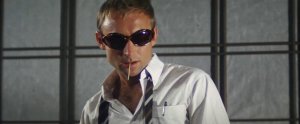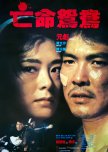
This review may contain spoilers
Simply magnificent
I genuinely can't believe I put this film off for so long! A darker-than-dark neo-noir thriller, On the Run, is exactly the kind of film I adore one that's raised to another level by an incredibly dark sense of humour and a knack for doing the unexpected. It takes you for a ride, managing to assault, frustrate and delight regularly never ceasing to be entertaining or compelling. It's far from uplifting, a constant overhanging anxiety plagues its characters from the then-upcoming Chinese takeover of Hong Kong, even in 1988 they were worried about the future, it gives the film a suitably grim atmosphere even in the face of its stunning visuals. It's so weird to think that Alfred Cheung was more well-known for his comedies because watching this you honestly wouldn't know it. He perfectly complements the gloomy theme with dark cinematography of the black, Hong Kong horizon dimly lit with the traditional glow of neon lights. It is almost impossible to not be utterly captivated by its mood. As much as this is one of Yuen Biao's finest performances, the film is absolutely stolen by Pat Ha; displaying an intense physical presence throughout as a cold-blooded hitwoman with a heart of gold that commands incredible respect and sympathy. Aside from an incredible pole-slide stunt performed midway through by Yuen Biao, all the action is played with a brutal realism that's nothing short of spectacular, especially that final fight. Featuring a brilliantly crafted script that moves at lightning speed and a truly unforgettable musical score by Violet Lam, I cannot find myself praising On the Run enough, it's simply terrific.Was this review helpful to you?
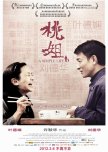
Beautiful
A Simple Life is simply divine. Expressing hope in human nature which befits the challenges of taking care of our sick and elderly, while its premise is rife with potential for sentimentality it remains remarkably restrained. It's a subject matter that Director Ann Hui handles with tender care and attention that's complimented by a plangent piano soundtrack to tug at the heartstrings tempered with a downbeat reality and tear-jerking performances from both Andy Lau and Deanie Ip that are just the icing on the cake. While these sorts of films aren't normally my cup of tea, you must have a heart of stone if this doesn't leave you unaffected by the sheer wholesomeness of its depressing reality.Was this review helpful to you?
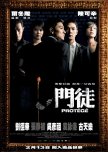
Unflinchingly tense
A gripping, often uncompromising look at the Hong Kong drug trade, Protégé takes a tried and tested storytelling formula and marries it to compelling cinematic finesse caught up in a cobweb of drugs, loyalties and deceit. Mercifully unpretentious, the film is directed with remarkable proficiency by Derek Yee, offering a look at both sides of the drug coin: those who profit from it and those who ultimately suffer from it. By keeping it more personal, Yee's film feels more intimate and urgent, more satisfyingly intriguing, helped in no small regard by its star power. A greyed-up Andy Lau is as great as ever, offering up a sympathetic spin on an otherwise purely business-focused drug lord, while Daniel Wu plays off of Lau with a subtle and controlled rage. With its smart script, solid acting and tight directing Protégé varies from intense drama to dreamlike to subtle shades of black comedy yet never feels like an afterschool special or an obvious morality tale.Was this review helpful to you?
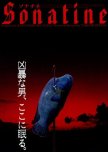
Joe Hisaishi's music destroys me
From its hypnotic style to its pessimistic plot, Sonatine is a mesmerizing manifestation of Takeshi Kitano's continued revitalisation of the yakuza movie. It is a largely peaceful, contemplative work, punctuated by moments of extreme violence all delivered with purpose balancing the fine line between gorgeously dreamy and grim reality. Kitano's haunting elegy to the gangster way of life, he spends the film exposing the gangster ideal as the myth, of little boys who forget to grow up, doing so with incredible flourishes of style, playfulness and jarring outbursts of his trademark humour. Having only written four scenes, the vast majority of the film was largely spontaneous, often Kitano finding his feet in the moment at hand. Sonatine sees the bleak suicidal tendencies of Kitano's mind coming right to the forefront, especially since he suffered partial facial paralysis after a motorscooter accident not long after this film's release. One he has often mentioned was an unconscious suicide attempt, this alone lends a massive amount of weight to the Russian Roulette sequences, giving Sonatine so much more emotional levity to its already unconventional narrative. With the addition of another stunning musical score by Joe Hisaishi, Sonatine rewards those with patience, offering up plenty of existential dread among its exceptional beauty.Was this review helpful to you?
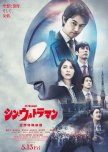
Arigato, Ultraman
I genuinely couldn't wait for a second longer in viewing this, I've been so excited for its release for so long that when some heroes leaked it to the internet during October I was over the moon, yet equally annoyed due to the fact I was already dedicated to Spooky Season at the time. But finally, my time has come and Shin Ultraman is everything I hoped it would be and more.As the threat of giant unidentified lifeforms known as "S-Class Species" worsens in Japan and just when the JSDF and SSSP are pushed to the breaking point, a silver giant appears from beyond Earth's atmosphere.
In this house, we do not stand for Shinji Higuchi erasure, dude had just as much input in the creation of this as Hideaki Anno so it feels morally wrong to completely exclude him from any and all credit he deserves. This film is fucking raw and equally gorgeous, with so many shots of note but the scene of "Ultraman" standing amongst the burning ruins of a city goes hard. Also worth noting is that if you only went to see this or Shin Godzilla due to Anno's name, maybe rethink how you are approaching these movies, just saying.
There's a conscious production design decision by the duo to make Shin Ultraman look as if it was in its genesis and absolutely not concerned with reaching the modern "standards" of polished reboot looks is such a refreshing take. Shin Ultraman looks the part of a brilliant piece of tokusatsu media, a fresh reboot for a new generation and a love letter for long-time fans as both Higuchi and Anno are themselves.
Like Shin Godzilla before it, the visual effects are fantastically stylised. There's a clear love for the original designs and a clever little riff on the reuse of the Shin Godzilla CG model if you know your Ultraman. Shirō Sagisu returns as the composer for the second time, beautifully enhancing the original works of Kunio Miyauchi while adding in works left unused from both Shin Godzilla and of course, fucking Evangelion.
There's so much to be said about the overwhelming success of this film, for a time the highest-grossing film of 2022 in Japan alone and currently sitting at the most commercially successful Ultraman film beating out my beloved Superior 8 Ultra Brothers. It stands tall as one of the finest examples of both a reboot and a piece of Ultraman media, although perhaps not as tall as Brave Love Tiga.
The film doesn't really want to spend time with the politics of its predecessor, as Higuchi has stated in interviews "if we just did the same thing, it's kind of pointless". More power to the man, but the film isn't without a small political commentary on the Japanese government and how they would delineate a situation like this.
There's a little commentary on humanity's place in the universe, and whether we've proven ourselves worthy of continuing as a species. This messaging isn't always elegantly executed but, like so much of the film, it's presented with such enthusiastic sincerity that it's hard to resist. The world may sometimes be a terrible, frightening place, but Shin Ultraman argues that a little decency can still go a long way. I fucking love it, roll on Shin Kamen Rider!
Was this review helpful to you?
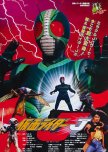
The weaker of the Amemiya duology
Easily the weaker of Keita Amemiya's two Kamen Rider films, but J does many things that ZO doesn't. Kamen Rider J skips out on the backstory of its Rider and instead leaves the questions till later opting for the action-first approach. The creature designs are suitably Amemiya with the direction and music as great as they always are, I could have done without the annoying little sidekick as it felt like Amemiya was trying to draw in a younger crowd with it, given the costume design of Zu it feels like the exact opposite, she possesses considerable dommy energy.Was this review helpful to you?
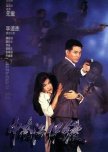
A superior Bodyguard
The Bodyguard from Beijing is a bit of lively, unpretentious fun that takes Mick Jackson's The Bodyguard but replaces Kevin Costner with Jet Li and the weird musical numbers with kung fu. Corey Yuen directs with a visceral energy that wouldn't be out of place in a Wong Jing movie and although, the writing is certainly a bit on the hokey side Li's charisma as a real man's man shines through. With plenty of high-energy and varied gunfights to keep you engrossed, a solid musical score and a fantastic final fight to boot elevate what could have otherwise ended up as a rather undercooked and stale riff, yes it's rather generic but there's a heart-beating somewhere underneath its surface.Was this review helpful to you?
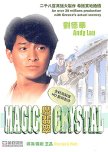
Seriously underrated madness
One part ET, another part Indiana Jones but a Wong Jing movie in every other sense, Magic Crystal has everything and the kitchen sink cheesed up to the max, but dosed on adrenalin too. Wong Jing's signature chaotic direction, balls-to-the-wall pace, brutal stunt work, cheesy yet ridiculously charming effects and humour that ranges from childish to outright offensive but it's presented in such a way that it remains hilarious. Topped off by an incredible cast that includes the likes of Andy Lau, Cynthia Rothrock and an awesomely villainous Richard Norton all of whom commit 100% to the film's stupidity. It's over the top and knows it, delivering endless, ferocious and well-choreographed action all set to a rocking synth score that has become a staple of most 80s Hong Kong movies. Daft, dumb and oh-so-fun, Magic Crystal is one you owe yourself to watch if you are in any way a fan of shlocky excellence. Then again I also gave 5 stars to Future Cops... so you decide.Was this review helpful to you?
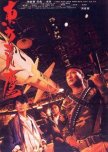
Sammo does John Woo
If you only know Sammo Hung for his more happy-go-lucky roles, then Eastern Condors will be a massive shock to the system, going as far as to tread into John Woo's territory of heroic bloodshed. Taking the idea of The Dirty Dozen but setting it in Vietnam, Sammo got serious with this one, even cutting his trademark hair and slimming right down. There are no mincing words about how brutally violent Eastern Condors gets... Hands get chopped off, Vietcong kids play Russian Roulette and people are shot point blank with no hesitation, in the wrong hands it's distasteful stuff, but Sammo treats it all with sincerity, marking this film out as one of his finest accomplishments as an actor, martial artist and director.Although the majority of the action is hyper-intense gun fights occasionally punctuated by a familiar moment seen in Western war films like The Deer Hunter or the Rambo franchise, there is a spectacular final bout of full-contact fisticuffs for the patient ones among you. The cast is populated by plenty of familiar names and faces, although I do wish they got a bit more characterisation outside of their nicknames and who plays them, they all commit often coming away bloody and bruised from the hyper-dangerous stunt work. For better or worse, Eastern Condors has a gritty edge that makes it truly stand out amongst Sammo's filmography often feeling like what Heroes Shed No Tears had originally wanted to be, it's an absolute must-see!
Was this review helpful to you?
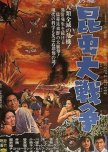
Exhausting
Exceptionally convoluted and deliriously nihilistic, Genocide is appropriately harrowing and periodically bonkers if a little middling around the second act. The second of only two movies from director Kazui Nihonmatsu, having previously helmed The X from Outer Space, Genocide is all over the place with enough hair-brained ideas to fill two movies let alone a single 84-minute one, primarily the hallucinogenic bees being bred by an insane holocaust survivor. Nihonmatsu handles the film with considerably more skill than his prior effort, there's a wider variety of shots and a better building of suspense thanks in part to the photography of Shizuo Hirase and the passable score from Shunsuke Kikuchi. It's very much an accident of a film, suitably ambitious and apocalyptic in its finality, ultimately hinging on the potential detonation of a hydrogen bomb and the single mother who may have to single-handedly repopulate a country. Genocide is an exhausting yet very rewarding experience, showcasing so pretty damn good filmmaking for its small budget but, as noted before, has too much plot for its own good.Was this review helpful to you?

Watch the HK Cut
The answer is Jackie Chan. Who Am I? sees Jackie tackle the amnesiac spy thriller years before the Matt Damon shaky cam series and although a lot of the acting from its supporting cast leaves a lot to be desired (almost to the point of brain dead), the action more than makes up for it. The story feels unnecessarily complex and often messy but makes for an otherwise very compelling mystery (provided you watch the right version) in one of Jackie's more serious turns ala Crime Story. Benny Chan's direction is all pretty solid and Nathan Wang's score is decent if very dated, but seeing it paired with Jackie running around causing mass destruction in the Netherlands all while clad in a pair of clogs was truly a sight to behold. Despite a tepid first half, the film picks up steam with some great action, a fantastic car chase and the usual death-defying stunts in the second, with the rooftop fight easily ranking as one of his best, it's all just as imaginative and energetic as his early works even with Chan's advancing age.Was this review helpful to you?
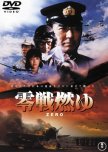
Another one for the “Toshio Masuda is one of Japans most underrated directors” pile.
There's something strangely perfect about Zero being directed by Toshio Masuda, having been kicked out of the kamikaze in 1944 for being excessively liberal and pacifistic. It's a real treat to finally see another one of his war epics after so many years, this time him and him alone in the chair. Based on a serialized story by Kunio Yanagida, this is the story of the Mitsubishi Zero through the eyes of the engineers who designed the plane and the pilots who flew it.Shoichi Hamada is a pilot flying the Imperial Navy's ace in the hole, the Mitsubishi A6M Zero, during the first years of the war the Zero is seemingly unstoppable, shooting down almost every type of plane the allies send at them. Hamada's best friend is Kunio Mizushima, assigned to the ground crew, they are both in love with one girl… but will the ravages of war tear them apart?
Toshio Masuda's direction is simply sublime, taking what worked on Tora! Tora! Tora! over a decade ago and bringing it back tenfold. It is clear Masuda had no love for war and thus directs the film with a dash of gritty realism, unflinching in its portrayal of death, bad decisions and ultimate endeavour for a lost cause. By stark contrast when the film isn't wowing you with its climatic and brutally intense battle sequences, it shines with a glorious use of colour.
The plotting is well done, keeping the story of the Zero first and foremost while framing the story of the young pilot around it. Masuda seemingly backhands the naval authorities for using the pilots as expendable property. In general, the film has no respect for higher authorities, portraying most of them as simply using their soldiers, and not caring about their lives. The story is told in reverse, starting from 1944 and going in reverse to 1937. The pacing is well done, keeping everything at about the same level.
The acting is great on most parts, and even the expats seem to be doing well, it's often noted how poor a lot of them were in Japanese films of the era but here they do a standup job. As for the main characters, they are directed with enthusiasm that goes with their youthfulness. The love triangle is directed well but in a way, it's almost like a precursor to the later Michael Bay shakey-cam fest, Pearl Harbour, ending on that usual "war romance" subversion.
Daijiro Tsutsumi as Hamada brings all sorts of emotions to the table, and by the end, it is clear the Japanese war machine has become him. Kunio Mizushima, played by Jun Hashizume, shows clear concern for his friend as well as a great love for the female love interest, Shizuko Yoshikawa. Shizuko Yoshikawa, herself is a very well-done love interest. She clearly has a mixed bag of emotions for the two leads and loves them both on different levels. Tetsuro Tamba's brief appearance as Isoroku Yamamoto casts him as a very sympathetic man, clearly concerned for the lives of his young pilots despite only appearing for about 5 minutes. Shin Takuma does well as Teruo Tojo, the Zero's financier and Mitsubishi Motors president, showing quite a youthful energy and enthusiasm for his character.
The special effects by later Biollante to Destoroyah Effects Director Koichi Kawakita are very well done, clearly showing off just as much enthusiasm for pyrotechnic effects as his teacher Teruyoshi Nakano. The miniatures look great, and it’s nice to see a few Zero miniatures portrayed accurately as white in the opening 30 minutes. The camera angles during the air battle scenes are daring, and Kawakita makes use of frenetic camera movements during the battle scenes to enhance the combat. There is quite a bit of stock footage in the film, all the way from Storm of the Pacific to Kawakita's own Zero Pilot and to The Imperial Navy, but the original effects all look fantastic and blend very well with Kawakita's efforts.
The music by Harumi Ibe has a dated late 70s-early 80s quality that actually works for the film, and the score uses a lot of horns as well as 70s-style guitar work that make it clear Ibe was primarily used to the 70s style of composing and hadn't quite made the jump to the 80s sound design yet. Even then it's a great score and the film's theme song, Dawn, is sung beautifully by Yujiro Ishihara. Befitting the film's historic ending scene well.
Overall, I can't recommend Zero enough. It's clear how much Toho bought their A-Game in 1984, between this, The Return of Godzilla and Sayonara Jupiter, their tokusatsu efforts were on top form. If you ever get the chance to see it, do so.
Was this review helpful to you?
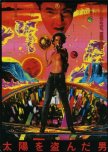
A perfect companion to Oppenheimer
The Man Who Stole the Sun treads the finest of lines in trying to balance its subject matter and tone, but Kazuhiko Hasegawa's controversial movie about nuclear terrorism is a darkly comedic and thrilling satire on a subject once considered unsatiriseable annihilating any form of genre borders in the process. Holding particular resonance for Japanese audiences, as while the country does use nuclear power, it has long held against amassing a nuclear arsenal due to the devastating effects that ended World War II. The movie doesn't stop dead for any form of long-winded nationalistic or philosophical speeches and instead insists on a conceivable reality with seemingly no motivation.One of only two movies directed by Kazuhiko Hasegawa, which in turn feels like a crime in itself, Hasegawa rewards the viewer with some utterly sublime direction and excellent framing, with plenty of thrilling action set pieces to command his viewer's attention at all times (the car chase feels like it was ripped right out of a Ringo Lam movie). It balances the unorthodox nature and tone of the movie exceptionally well, juxtaposing the shifts with unnatural ease. Complimented by funky and often ill-fitting music by Takayuki Inoue to glorious success.
The performances are all excellent, with Kenji Sawada playing the everyman gone rogue with an endless amount of animosity slowly succumbing to the effects of radiation poisoning making him more and more unpredictable as the movie goes on. But it's the award-winning performance from the stoic and hardened Bunta Sugawara that really captivates me as he normally does in his roles, single-minded and exceptionally driven.
Overall, The Man Who Stole the Sun, even at two and a half hours long, never feels overly long or bloated. The film absolutely refuses to limit itself, and that's why it's so entertaining and impressive.
Was this review helpful to you?

Fun if uninspired sequel
Takashi Miike's loose and belated sequel to The Great Yokai War, Guardians is much more of the same, so if you liked the previous adventure, you'd like this. It's made for kids so accessibility is a key factor to its appeal, meaning there's not much meat to its story beyond your standard hero's journey, but just because it's more kid-friendly doesn't mean it lacks a lot of wacky, and sometimes downright disturbing, imagery courtesy of the Yokai themselves which are brilliantly realised (both east and west alike). Miike even managed to bring back our great guardian god Daimajin for an extended cameo which put a big smile on my face knowing he was originally lined up to direct a film reboot in the late 2000s. Fox-Faced Woman also was 😳.While there's certainly a lot of love and creativity put into this movie, I can't deny like the previous film, it certainly has its faults. The child-friendly tone does its story no favours, especially in the final act where you'd normally find Miike going hell for leather, it falters. The overreliance on CG like the last, has dated the film extremely quickly although Japan has never really had the best of results with this technology. Regardless, for what it's worth, The Great Yokai War –Guardians– is a fun romp but extremely subdued Miike which is saying a lot.
Was this review helpful to you?
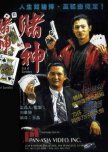
Verstility is the name of the game
Original Hong Kong VersionEven with this ancient DVD print full of screen tearing and damaged frames, God of Gamblers showcases one of Chow Yun-Fat's most versatile performances effortlessly switching back and forth between impeccably suave and utterly adorable on a dime. Backed by the ever-amazing Andy Lau, it's really only two extremely questionable moments that hold this film back from being rated any higher. Even then Wong Jing's intense gambling drama is a classic of Hong Kong cinema and one I will definitely pick up on Blu-ray. I do question the sheer number of sequels and spin-offs though with one of them being a time travel story... Nonetheless, sign me up.
Was this review helpful to you?

